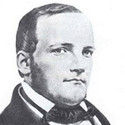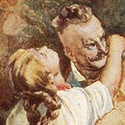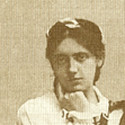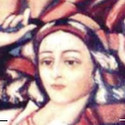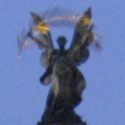A classical music composer is one who has learned how to become a composer and whose music is performed at classical music concerts enjoyed by many audiences.
Stanisław Moniuszko (1819-1872) belongs to the group of opera music and classical music composers, who is not as famous as, for example, Mozart or Tchaikovsky. Nevertheless, Moniuszko, as an opera and classical music composer, is well known in Polish music circles. Famous opera and classical music singers have performed his works, including Solomiya Krushelnytska and Aleksander Myshuha.
Discover a Polish Opera and Classical Music Composer
Who is a Famous Polish Opera and Classical Music Composer?
As a classical music composer, Stanisław Moniuszko (1819-1872) is better known as the father of Polish opera. However, in addition to opera music, Moniuszko composed many other types of classical music: religious canons, cantatas, overtures, ballets, operettas, as well as folk song arrangements.
Classical music composer Stanisław Moniuszko:
- 1819 May 5 – born outside of Minsk, Belarus;
- 1837 – moved to Berlin, Germany to study music and how to become a composer;
- 1840 September 25 – married Aleksandra Mueller (aka: Miller and Müller), who was born outside of Vilnius, Lithuania;
- 1858 – visited Paris, Berlin, Prague, Weimar;
- 1858 August 1 – appointed Principal Conductor of the Polish Opera in Warsaw, Poland;
- 1865 October-December – spent time in Lviv, Ukraine
- 1872 June 4 – died and was buried in Warsaw, Poland.
Stanisław Moniuszko's heritage is steeped in the traditions of Eastern Europe and include Armenian, Lithuanian, Ukrainian, as well as, Polish roots. After all, Stanisław Moniuszko's mother, Elżbieta Madziarska (?-1850), was of Polish-Hungarian-Armenian background. Stanisław Moniuszko's father, Czesław Moniuszko (1790-1870), was of Polish nobility.
There is no denying that as a classical music composer, Moniuszko's works are Polish in language, location and character. And, there is a general agreement among Polish experts that Frédéric (aka Fryderyk) Chopin (1810-1849), as composer, was the founder of Polish classical music. In this same vein, Stanisław Moniuszko is considered the father of Polish national opera.
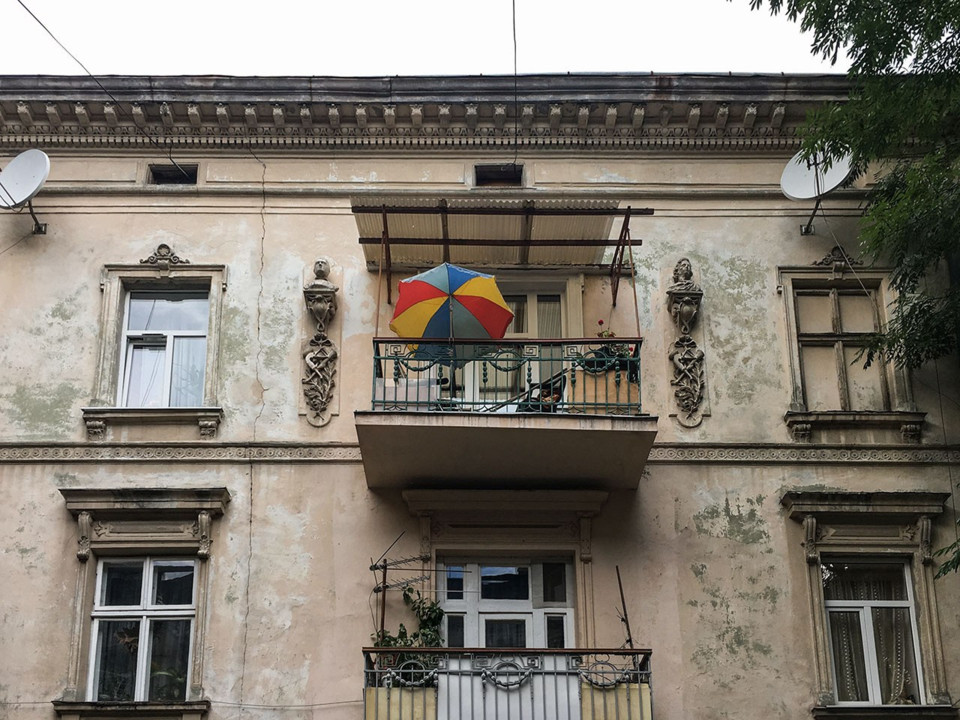
Classical Music Composer Stanisław Moniuszko and Frédéric Chopin
Façade of Chopin St. in Lviv, Ukraine (a new window will open)
How is Classical Music Composer Moniuszko Associated with Ukraine?
Stanisław Moniuszko (1819-1872) was:
- born in Belarus
- spent much of his early life in Lithuania
- was employed for a good part of his life in Poland.
An interesting and influential figure in Moniuszko's life was Aleksander Fredro (1793-1876). Fredro spent most of his life on the territory of Ukraine.
Moniuszko and Fredro were acquaintances and colleagues. Documents don't provide us with information on when Moniuszko and Fredro met, although their noble roots most likely contributed to their acquaintance.
In 1839, the operetta (musical drama) Nocleg w Apeninach (Overnight in the Apennines), libretto by Aleksander Fredro and music by Stanisław Moniuszko, was staged in Vilnius, Lithuania, the city where Moniuszko was resident. According to some sources, that same year (1839), according to other sources – two years later (1841), Nocleg w Apeninach was also staged in Lviv, the city where Fredro was resident.
Ten years later in 1849, the opera (musical drama) Nowy Don Kichot, czyli Sto szaleństw (The New Don Quixote, or 100 Follies) libretto by Aleksander Fredo and music by Stanisław Moniuszko was staged in Lviv. Composed in 1841, documentary evidence shows that Moniuszko mailed (a new window will open) the completed manuscript to Lviv on July 22, 1842 where Fredro resided. At the time, Moniuszko was resident in Vilnius, Lithuania. On the original manuscript Moniuszko hand-wrote a dedication to Fredro:
dedicated to the author of this work as a demonstration of my most sincere devotion
And, why is all this significant and important for Ukrainians?
Because, Aleksander Fredo (1793-1876), the librettist for classical music composer Stanisław Moniuszko's works was the maternal grandfather of Metropolitan Andrey Sheptytsky (1865-1944) – one of the most influential religious leaders in early 20thC Ukraine.
There is an additional interesting Ukrainian-Polish tidbit regarding this classical music composer.
Throughout his lifetime, Stanisław Moniuszko gathered, arranged and published folkloric materials, specifically folk songs. These acquisitions were published as Spiewnik Domowy (Home Song-Book). Between 1844 and 1859, Moniuszko published 6 volumes of these folk songs. The remaining 6 volumes (Vol.7-12) were published after his death. Significantly, in the 2nd Volumne (1845-1846) of this 12 Volume series of folk songs, Moniuszko included Wyjazd z Ukrainy (Departure from Ukraine).

Spiewnik Domowy (Home Song-Book) by Stanisław Moniuszko
What is the Significance of the Opera Halka by Stanisław Moniuszko?
The opera Halka by Stanisław Moniuszko is this classical music composer’s most famous work.
The opera Halka:
- 1848 – premiere in-concert performance in the original 2 Act version in Vilnius, Lithuania;
- 1854 February 16/28 – premiere performance in Vilnius, Lithuania;
- 1857 December 20 (1858 January 1) – premiere performance as a 4 Act opera in Warsaw, Poland;
- 1865 October 7 – 100th performance in Warsaw, Poland;
- 1900 December 9 – 500th performance in Warsaw, Poland with Salomea Kruszelnicka in the lead role.
19thC Europe is characterized by an evolution of national consciousness. During this period, the development of the nation state, with a distinct national language, history and territory was fostered by the intellectual and financial elites of Europe.
Music was often one of the key elements in the national identity development process. As a result, the concepts of a national identity became evident in the works of many a classical music composer in Europe, including Giuseppe Verdi (1813-1901), Richard Wagner (1813-1883) and, of course, Stalisław Moniuszko (1819-1872).
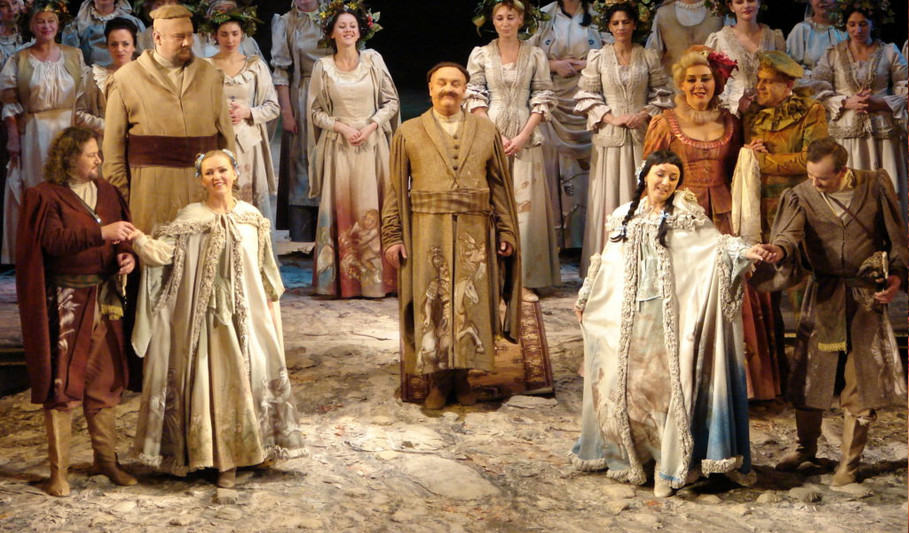
Scene from the Opera Straszny dwór (The Haunted Manor)
Lviv Opera House, Lviv, Ukraine
Filled with colourful scenes and lively dance interludes taken from the life of the Polish mountain people, the opera Halka, by classical music composer Moniuszko, reflects and provides a commentary on the inequalities that were present in 19thC European society.
Janusz is the son of a wealthy landowner. He is engaged to be married to Zofia, the daughter of another wealthy landowner. However, Janusz has previously declared his love for Halka, a mountain girl. Halka is pregnant with Janusz’ child. By the end of the opera, Janusz marries Zofia, while Halka loses her baby and commits suicide by drowning.
Initially, the opera Halka was not well received. Why? Because in 1848, most of the elites in Belarus, Lithuania, Poland, Ukraine and Russia were landowners and owned serfs. Interestingly, serfdom was only abolished in the Austro-Hungarian empire in 1848, the year that the first concert performance of Halka took place. In the Russian Empire, it wasn't until 1861, that serfdom was abolished. On those territories of Poland which were part of the Russian Empire, serfdom was legal until 1864.
Social inequalities during Moniuszko's time were a normal part of life. An opera that questioned these unequalities was not in keeping with the world view of many of the audience members. After all, the opera Halka is not named after a person of patrician background, but a mountain girl that has no noble or historical credentials.
On the other hand, the fact that Moniuszko chose a Polish language libretto and included in his 4 Act verison, dances and songs from the Polish folk repertoire, contributed to its later success within Poland.
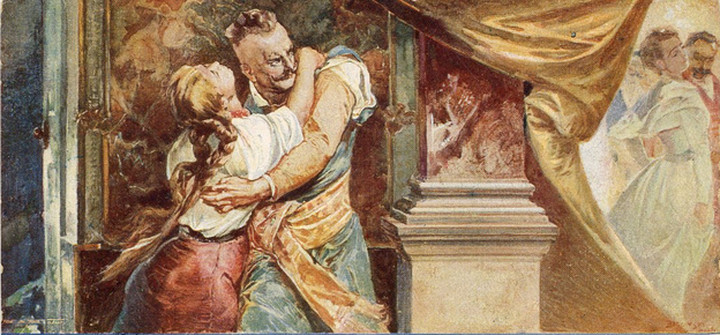
Scene from Halka by artist Stanisław Kaczor-Batowski (1866–1946)
Hall of Mirrors, Lviv Opera House
Listen to Music by Classical Composer Stanisław Moniuszko
Listen and view a concert performance of a key aria from the opera Halka by Stanisław Moniuszko (1819-1872).
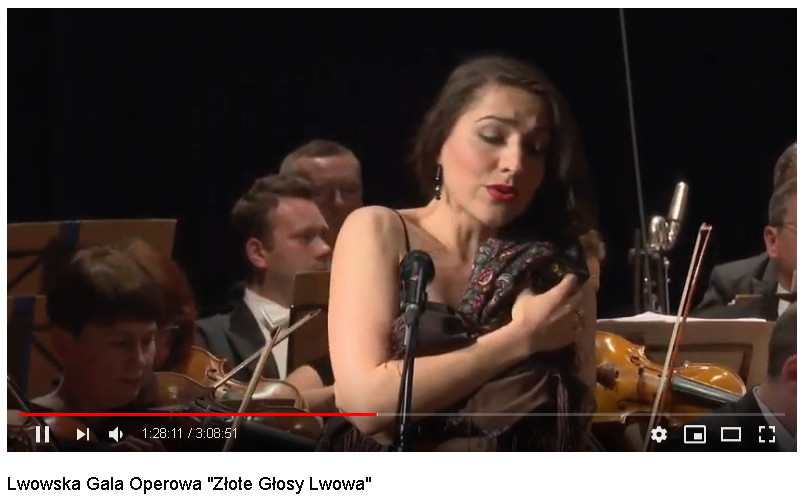
Listen and view on YouTube (a new window will open)
In the above excerpt, Ludmila Ostash performs the soprano opera aria from Act 4, Scene 8 – “Dziecientko nam umiera!..” (Our child has died!...). In the aria (opera song), the young girl Halka:
- laments the loss of her unborn child,
- plans revenge on the father,
- repents and in the end,
- blesses her former lover and wishes him well with his new bride.
The above performance took place on July 8, 2017 at the closing gala concert Lwowska Gala Operowa ‘Zlote Glosy Lwowa’ (Lviv Opera Gala ‘The Golden Voices of Lviv’) of the XXIII Miedzynarodowy Festiwal Muzyczny im.Krystyny Jamróz (The XXIII Krystyna Jamróz International Music Festival) in Busko-Zdrój, Poland.
The Orchestra Filharmonia Podkarpacka from Rzeszow, Poland was conducted by Myron Jusypowicz (aka Yusypovych). Opera singers from the Lviv Opera House performed.
Which Classical Music Singers have Performed in Composer Moniuszko's Opera Halka?
The opera Halka by Stanisław Moniuszko (1819-1872) premiered in the 1840s-1850s in Vilnius, Lithuania.
50 years later, the Warsaw Opera House celebrated the 500th performance of the opera Halka. Interestingly, all 500 performances occurred within the borders of the Austro-Hungarian and Russian Empires. Western Europe did not embrace this Polish language opera and its commentary on societal inequalities.
During the second half of the 19thC, many famous and not so famous opera singer performed the roles in the opera Halka.
Famous female opera singer Salomea Kruszelnicka (1872-1952) was destined to perform the 500th performance of the soprano role of Halka in the opera Halka. Significantly or ironically, Salomea Kruszelnicka was born in 1872, the same year that classical music composer Stanisław Moniuszko passed away.
According to a critical review after a performance in Warsaw, Poland on March 15, 1899, the author and musical critic Antoni Sygietyński (1850-1923) stated:
Salomea Kruszelnicka… having contemplated and reviewed her heroine's character, conveyed it with openness and honesty…
The 500th performance of the opera Halka took place on December 9, 1900. It was lauded as a cultural and societal highlight at the dawn of a new century.
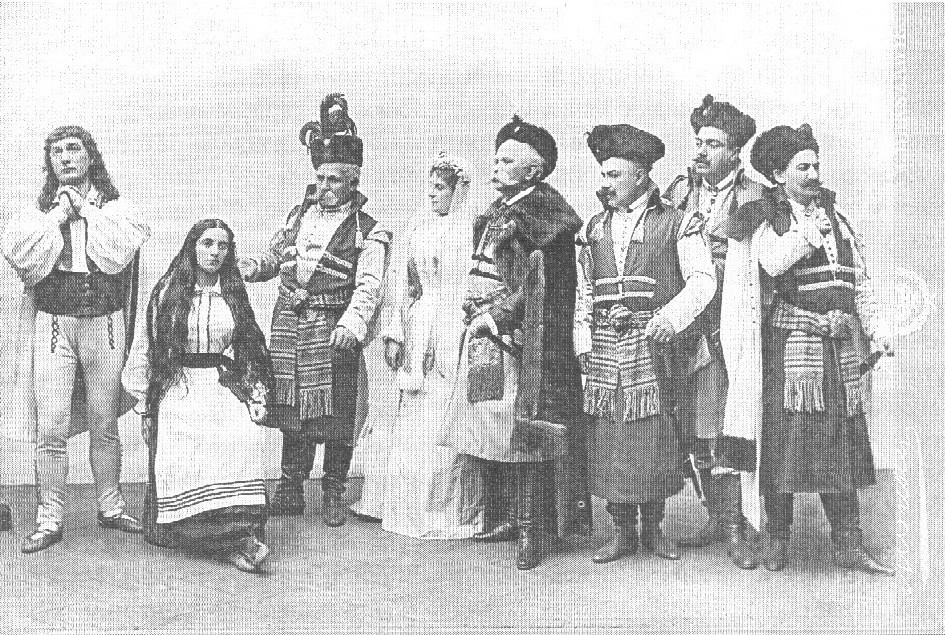
500th Performance of the opera Halka – December 9, 1900, Warsaw
Preparations for the event were widespread. An interesting discovery was made as arrangements were being made for the celebration'. It was established that the «first» Halka was living in Warsaw, Poland. Waleria Rostkowska (1825/1827-1917), who had performed the role of Halka in the premiere stage performance on February 16/28, 1854 in Vilnius, Lithuania had moved to Warsaw in 1897 and was living in an old age shelter (a new window will open).
Kruszelnicka personally visited the eighty-year old prima donna and arranged for her to attend the jubilee performance. As stated in «Biesiada Literacka»
The Halka from Vilnius was witness to her colleague's triumph.. And then, the young Halka presented her bouquet to the elderly Halka…
In 1912, the 700th performance of the opera Halka was another celebrated event at the Warsaw Grand Opera House.
Famous male opera singer Aleksander Myszuga (1953-1922) was invited to sing the tenor role of Jontek. Incidentally, Aleksander Myszuga made his operatic debut in 1880 in Lviv, Ukraine in another one of classical music composer Stanisław Moniuszko's operas, namely Straszny dwór (The Haunted Manor).
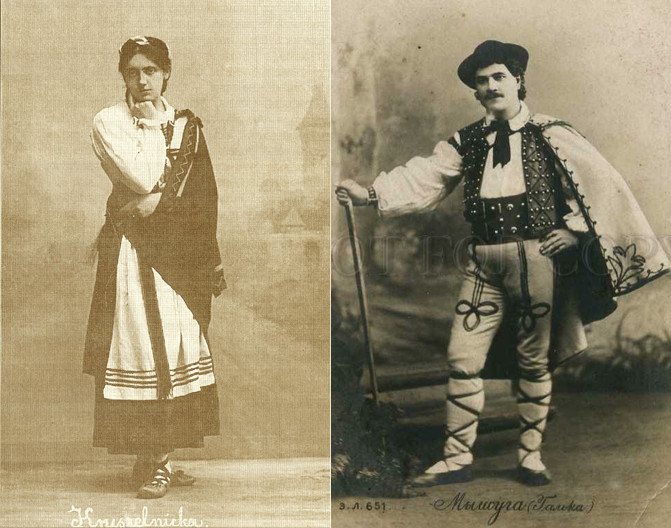
Salomea Kruszelnicka and Aleksander Myszuga in the opera Halka
On the 165th anniversary of the 2 Act version of the opera Halka, on November 16, 2013, a special performance (a new window will open) was organized by the Warszawska Opera Kameralna (Warsaw Chamber Opera) at the Lviv Opera House.
Text by Oksana A. Wynnyckyj-Yusypovych
More to Explore
